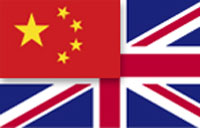THEATRE
 |
| UK welcomes Chinese nuclear investment |
 |
| German architect has bold plans for China |
The Socialist, who was French finance minister until six months ago, was given a torrid time by lawmakers who questioned his ability to enforce the EU's budget rules when Paris had repeatedly failed to meet its deficit-cutting targets and was again seeking more time.
The supplementary questions he must answer in writing by Tuesday were even more clearly designed to corner him, restrict any wiggle room and make him punish France. One asked:
"What action should apply to Member States whose budget deficit is constantly above 3 percent of GDP and which have already been granted an extension of the deadline to bringing down the deficit to Maastricht levels? Under which circumstances would you argue for granting more time or applying sanctions? What action will you apply to a Member State whose public debt is constantly above 60 percent of GDP and increasing? Under what circumstances would you not recommend to apply sanctions?"
Yet German Chancellor Angela Merkel's Christian Democrats, who dominate the EPP, pulled their punches in criticising Moscovici's performance, leaving the door open to accepting him grudgingly for the sake of Franco-German relations.
In theory, parliament only has the right to approve or reject the whole Commission in a single up/down vote due on Oct. 22. In practice, committees can withhold confidence from individual nominees who display a poor grasp of their portfolio or raise ethical or policy issues.
In 2004, lawmakers forced Italy to withdraw its nominee for justice and home affairs, Rocco Buttiglione, after he described homosexuality as a sin. To spare then Prime Minister Silvio Berlusconi embarrassment, the EPP insisted a Socialist nominee was also dropped and another made to switch portfolio.
No candidate has made that kind of gaffe this time, although some have floundered when asked detailed policy questions.
Deploying charm and wit, Hill initially seemed to disarm doubters who contended that a Briton was ill-fitted to regulate the excesses of finance or build a European banking union, since his country was dependent on an outsized financial sector and had turned its back on the euro and the banking union.
But he was floored when asked for his views on euro bonds -- jointly issued euro zone government debt -- and high frequency trading, and for his ideas for creating a capital markets union.
"I have no particularly informed view on the subject," he said of euro bonds, a hot-button issue in Germany which unlike the other two matters is not in his area of responsibility.
Perhaps the most successful nominee was Denmark's Margrethe Vestager who won unanimous approval after a self-confident three-hour audition for the powerful role of European competition commissioner. She even turned the tables on photographers by taking their picture on her mobile phone.
The format of the committee hearings, with no follow-up questions allowed, favours evasions and generalities. Whether the detailed written interrogation elicits more precise answers remains to be seen.
But unless the lawyers and accountants find a skeleton in Arias Canete's closet, the chances are that the wily Juncker will be able to exploit the balance of terror between EPP and S&D to push his team through, despite lawmakers' reservations.
He has another argument up his sleeve: neither major party wants what he calls "Europe's last chance" to restore public confidence to get off to a chequered start, with Barroso's lame duck Commission possibly forced to linger in office while parliament wrangles over new Commissioners' qualifications.
Since parliament has asked Juncker to move fast to present a 300 billion euro investment programme in November to revive the European economy, it would be held responsible for any delay.
